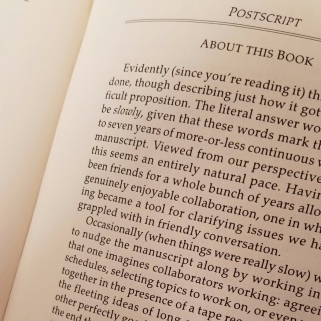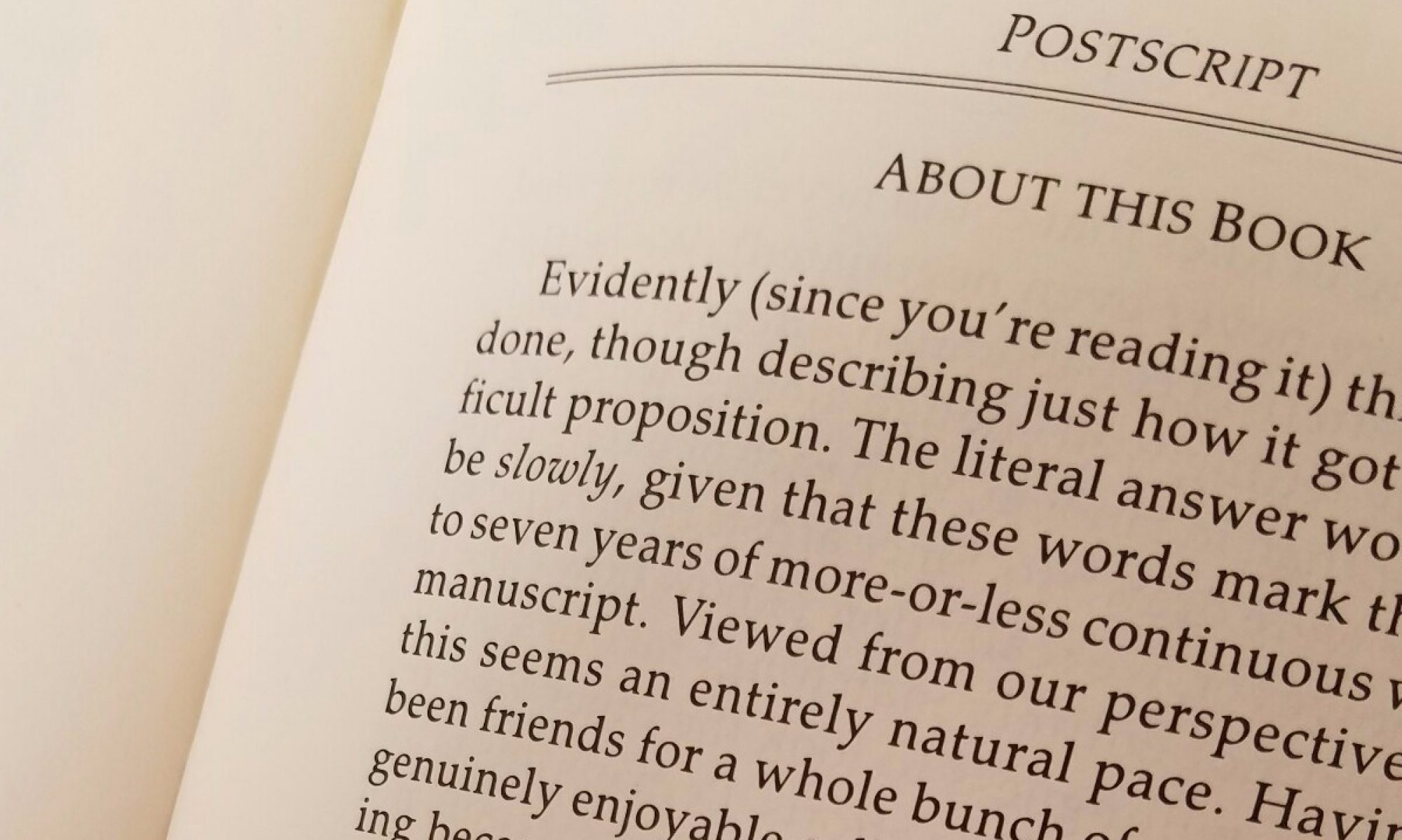About This Book

Evidently (since you’re reading it) this book did get done – by you. Describing how it has affected, influenced, frustrated, inspired, confused, or otherwise caused you to “feel” in some way is a difficult proposition. The 9 weeks we have taken to read this should provide the answer and that is what I would like you to do right here, right now. Take the time to add one last comment to the blog. What are your final thoughts, concerns, questions, remarks? Go to it – Thanks for reading and participating in the blogging experience.
- Frank Korb

This was my first time reading the book, and I’m not too sure how I feel about it. On one hand, it gave some pretty good points about making art, but on the other, it felt very opinionated and restrictive. Whether making art is a hobby or a career for someone, it should just be about making art for yourself and growing as a person. Not all art needs to have a serious intention, it can just be for fun. Through AP Studio, I have grown and experienced new materials and ways of making art, but I don’t really believe this book has majorly influenced my art making.
I don’t like reading about making art. Just make the art. I find that so often when artists agonize over the process, they create their own problems. Ruminating on self-imposed problems doesn’t help make your art any better. Only actually making art will do that. Two pretentious Capital A Artists are not going to enlighten me with mediocre writing and the same advice I can get from my peers and the greater art community in words that don’t sound like an essay students in a high school philosophy class churned out in an hour trying to sound Smart. Not my thing. Just tell me the facts and don’t put on some show. The tortured artist trope needs to die. We’d all be a little better off if we stopped buying into the fact that we’re supposed to be miserable about our art. I’m sure this book has great value to other people, but for me, it doesn’t mean a whole lot. It is, as the kids say, “fake deep.” But to each his own. If anything, I learned that art is a lot more fun when you stop trying to apply someone else’s rules to it.
After reading this book twice now, whether I say I like it or not, I have definitely taken a few good thoughts from reading this. I think that it gave me ideas and helped me jump to conclusion therefore solving problems. You can’t solve a problem unless you know what the problem is and I think that “Art and Fear” helped me figure out what that problem was so I could then figure out a way to resolve it.
Overall, I didn’t mind reading the book. I think that the ideas presented throughout each chapter allowed me to resolve the challenges I am currently facing or have faced in the past. I may not have fully understood some of the points they were making, but it made me think about other challenges artists may face and to think about the large impact art has on the world. There are definitely ideas and messages to take away from this book, and it has caused me to work harder in finding my own voice as an artist.
I dont really feel like ranting, so i wont go on to long, but I do still need to make a comment here. Overall, it has been obvious that I had not enjoyed this book (my reasons for disliking the book have been said throughout my past comments). I dont mean to be narrow minded, but there are just some ideas I don’t agree with. Overall, I just don’t have much to say about this book, except that I am not looking forward to it next year ¯\_(ツ)_/ ¯. I do understand you are assigning this with your best intentions, but dude, how am I supposed to make thoughtful comments on a book that I think is so pointless.
I agree one-hundred percent. The book was very opinionated and I see it as a failed attempt to get me to push forward with my art carrier. I see things as they are, and the way I see it is that art should be a hobby, for me at least. I like making art on my own time and of what I want. This class put me through a lot of stress and frustration with many things like time-management, motivation, and perseverance. The book didn’t effect me at all, and I tried to read it twice!
I believe this book has pushed forward my perfectionism and prompted me to find my voice. Through creating many works, I have eliminated my urges to create “the perfect piece” and instead focus on the strong aspects of the many pieces I created. In reading the book twice, I found new things and reacted differently to the same words.
While the book seemed to have an almost pessimistic tone, the authors still made some great points. I appreciated the positive emphasis on how it is important that you make art that you personally enjoy, and that perseverance is more important than talent. I also agreed with some of the pessimistic statements such as that most people don’t care about your art. I did feel that some of the their thoughts, such as the pressures of the academic world were a bit unrealistic, though. I probably never would have read this book if I hadn’t taken AP Studio Art (the books I read often involve some kind of adventure or science fiction/fantasy), I would say that there is good advice that can be taken away from this book, and I would recommend this book to any fearful artist. Good job, authors.
This book just kind of added another thing to do during the week. Especially because I’m reading Amityville Horror in my Classics of Horror class. Because I’m reading this other book and I put that book at a higher priority, I continuously forgot to read art and fear at the end of the week. This book also felt very textbook like, very informal. And of course as a student that sits in a classroom five days a week and reads nothing but informational books. This one did not feel very special or interesting to read.
I thought this book was rather interesting. I agree with a lot of the points made. However, there are many things I didn’t agree with. I felt the author had an odd depressing tone to his book. He seemed to act like art is a horrible struggle with few benefits. I feel art can be hard, like anything else, but if you truly love it, the difficulties fade away. He talked a lot about people giving up on art and how it is a hard area to get into. I feel art should be seen as more positive, because it has helped me throughout my life. I feel the book was more negative then positive, and I would of liked it better if it talked about the beauty and benefits of art. I know it is called “Art and Fear”, but you can overcome your art fears if you truly love art.
I like it.